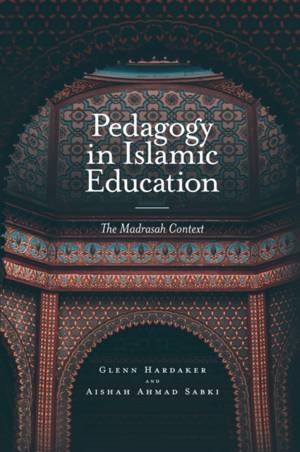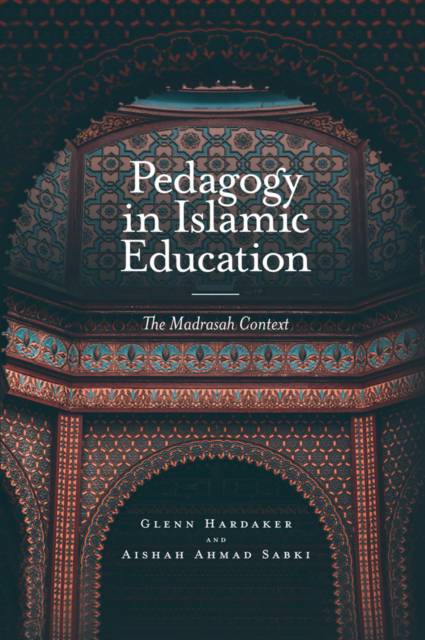
- Afhalen na 1 uur in een winkel met voorraad
- Gratis thuislevering in België vanaf € 30
- Ruim aanbod met 7 miljoen producten
- Afhalen na 1 uur in een winkel met voorraad
- Gratis thuislevering in België vanaf € 30
- Ruim aanbod met 7 miljoen producten
Zoeken
Pedagogy in Islamic Education
The Madrasah Context
Glenn Hardaker, Aishah Ahmad Sabki
Hardcover | Engels
€ 178,95
+ 357 punten
Omschrijving
In Islamic education, the development of teaching and learning for the physical and spiritual training of humanity places equal importance on revealed and acquired knowledge. This book provides a greater understanding of Islamic pedagogy from a spiritual perspective, which requires empathy with the Islamic premise of the inseparable nature of knowledge and the sacred. The book is intended to provide a particular insight into the relationship between Islamic pedagogy and embodied learning and associated common features that are seen in Madrasahs, and related educational institutions.
The first part of the book traces key moments in madrasah history and their formation; diversity of Islamic institutions, and the notion of the scholastic community. It identifies the rise of the Islamic education institutions and the diversity within their formation. Despite the partial disappearance of the spiritual in many Islamic education institutions, the authors argue that the spiritual construct is still deeply implicated in the reification of Islamic pedagogy and in the process of embodiment. The second part of the book draws on unravelling knowledge and the sacred that considers the philosophy of Islam and knowledge, spiritual understanding of Islamic education, and knowledge and the sacred as an educational compass. Finally, the book explores the implications of Islamic pedagogy and embodied learning, the universal nature of Islamic pedagogy, and reflections for the future.
By bringing to bear a variety of Islamic and educational studies research, relative to Islamic pedagogy, this book opens up new avenues for research into Islamic education. The book will be of particular interest to scholars investigating Islamic education, Islamic pedagogy, and embodied learning.
The first part of the book traces key moments in madrasah history and their formation; diversity of Islamic institutions, and the notion of the scholastic community. It identifies the rise of the Islamic education institutions and the diversity within their formation. Despite the partial disappearance of the spiritual in many Islamic education institutions, the authors argue that the spiritual construct is still deeply implicated in the reification of Islamic pedagogy and in the process of embodiment. The second part of the book draws on unravelling knowledge and the sacred that considers the philosophy of Islam and knowledge, spiritual understanding of Islamic education, and knowledge and the sacred as an educational compass. Finally, the book explores the implications of Islamic pedagogy and embodied learning, the universal nature of Islamic pedagogy, and reflections for the future.
By bringing to bear a variety of Islamic and educational studies research, relative to Islamic pedagogy, this book opens up new avenues for research into Islamic education. The book will be of particular interest to scholars investigating Islamic education, Islamic pedagogy, and embodied learning.
Specificaties
Betrokkenen
- Auteur(s):
- Uitgeverij:
Inhoud
- Aantal bladzijden:
- 160
- Taal:
- Engels
Eigenschappen
- Productcode (EAN):
- 9781787545328
- Verschijningsdatum:
- 19/11/2018
- Uitvoering:
- Hardcover
- Formaat:
- Genaaid
- Afmetingen:
- 157 mm x 231 mm
- Gewicht:
- 340 g

Alleen bij Standaard Boekhandel
+ 357 punten op je klantenkaart van Standaard Boekhandel
Beoordelingen
We publiceren alleen reviews die voldoen aan de voorwaarden voor reviews. Bekijk onze voorwaarden voor reviews.








